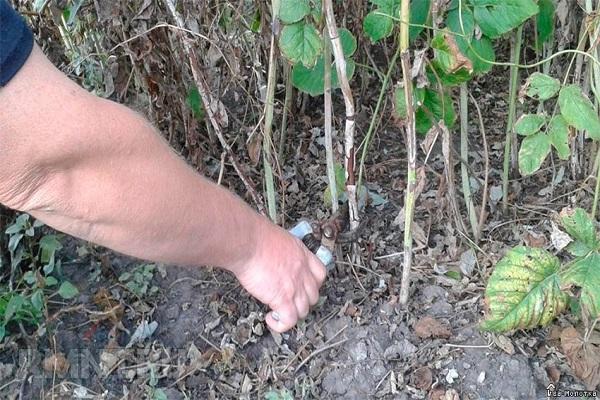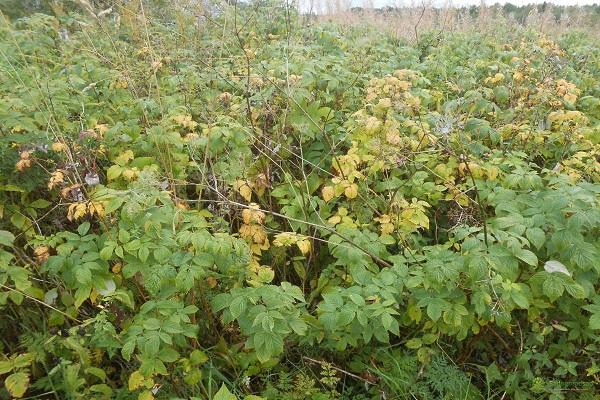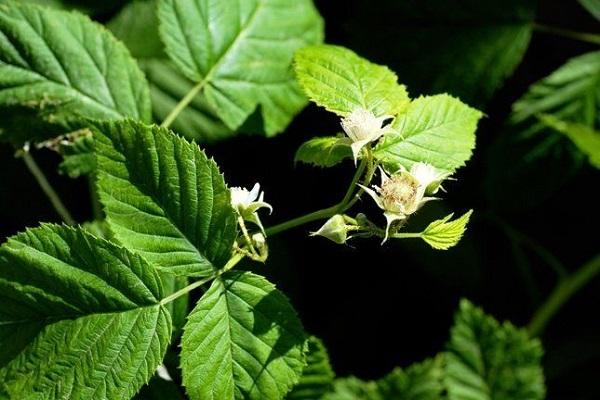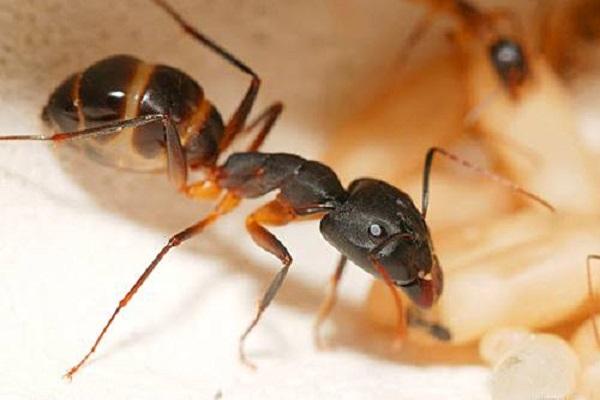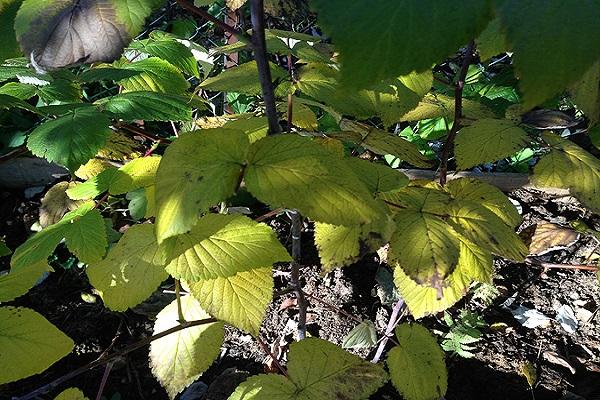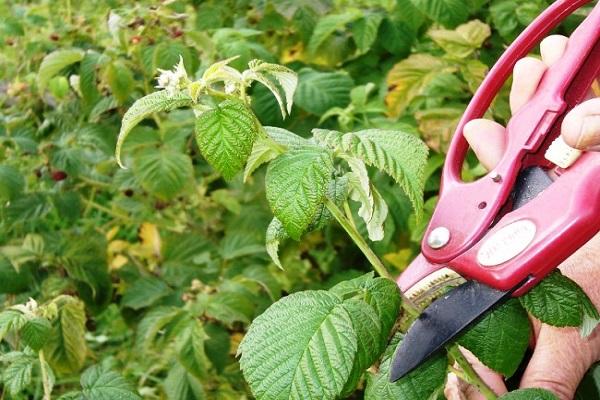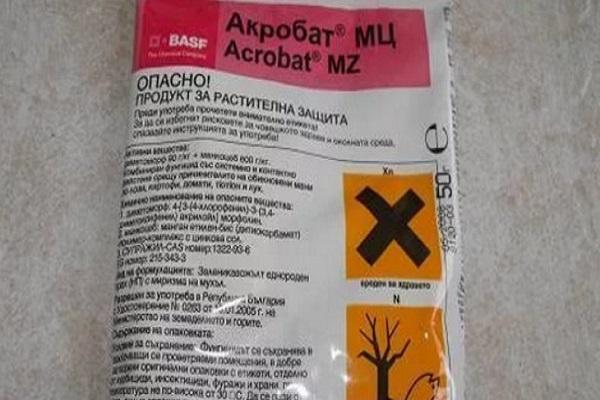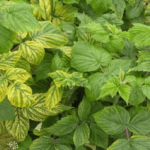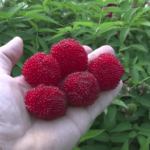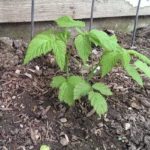There are many reasons for poor fruit formation on raspberries or their absence. This is improper care: planting, pruning, placement on the site, fertilizing. There is no need to refer to varietal characteristics. The problem can be fixed. The main thing is to notice the raspberry disease in time and begin to eliminate it. Why berries on raspberries do not form and grow, today we will describe in detail the most common causes and methods for eliminating them.
Why raspberries don't grow
Let's look at the common reasons why berries on raspberries do not form or do not grow to their full potential. According to gardeners, raspberries are degenerating in varietal characteristics. This can't be true. Even in the wild, when the raspberry fields are very thick, there is a harvest, albeit a meager one.
The whole point is the lack of sufficient attention to the plant. Often, due to little or no experience, gardeners do not know how to care for plantings. But for raspberries, the key to success is care.
Dead wood
Old shoots that have dried up since last year prevent new, fruit-bearing raspberry branches from growing fully. Productivity is significantly reduced. In spring, the branches that had berries last year dry up. In the spring they require cutting. You can also prune in the fall if you are an experienced gardener and can distinguish a new shoot from one that has already bear fruit.
This should also include the presence of frozen tops. In this case, the raspberry branch does not die completely. During the growing season, these shoots become sick and draw nutrients that would go towards the formation of fruits.
The raspberry plant interferes with itself
You can often see a picture of raspberry thickets in a summer cottage. Plants weaken because there are not enough nutrients to produce fruit at full strength. Some gardeners believe that the more shoots there are on the raspberry, the stronger the harvest. This is a wrong judgment.
Raspberry is a freedom-loving plant. If you compare a separately planted bush and crowded thickets, it is noticeable that the quality and quantity of berries deteriorates in the latter. Raspberry bushes are usually planted on a trellis, arranged in rows. There should be a certain distance between each row and neighboring bushes.
70 centimeters is considered the best.If there is enough space between the rows, then it will be easy for the gardener to process the plantings, and during harvesting the shoots will remain intact and will not break.
Soil compaction
Raspberries are a very finicky berry crop. It also makes special demands on the soil. It is better to plant bushes on fertile, light soils. Over time, the soil under the raspberries becomes very compacted, and if it is not loosened, the fruits will be small.
Important! Raspberries do not like clay soils, which become very hard when exposed to water and then crack. This process can severely damage the root system.
Drought at the time of ovary
Waiting for raspberries to bloom and set fruit is a particularly pleasant experience. Gardeners are looking forward to the results of their work. But it happens that the raspberries have flowered fruitfully, the ovary has appeared, but suddenly the berries do not begin to fill. What could be the reason?
First of all, this is insufficient watering in dry weather. The raspberry root system absorbs the moisture available in the soil and uses it for the growth of shoots and leaves. The ovary will remain aside. Some of it will simply fall off from lack of water. A few fruits may still remain and continue to develop, but in the future these berries will be small and diseased. They will quickly turn red and will not have time to fill up to their full potential.
Ants with rodent habits
Illiteracy of a summer resident is not always the reason for the lack of raspberries. If timely watered crops bloomed profusely, formed an ovary, and then simply threw it off, then the reason most likely lies in the invasion of enemies. These enemies are ants, which cause harm to all fruit and berry crops on your estate.
How do ants harm raspberries? These insects are very partial to sweets, and raspberry flowers are abundantly filled with sweet nectar, which attracts ants. And since they do not have a sucking apparatus, they chew flowers and extract nectar. Subsequently, the raspberry flowers dry out or an inferior ovary forms in their place.
Insufficient care
Insufficient care is a flexible concept. The reasons for failure can be not only unfulfilled agrotechnical measures, but also their poor quality implementation. Among them:
- untimely watering;
- improper application of fertilizers or lack thereof;
- untimely pruning of raspberries;
- poor quality weeding.
The yield and quality of raspberry fruits depend on these actions and their timely implementation.
How can you help raspberries?
In any situation, the raspberry tree can be saved. What you will need for this:
- Every spring it is necessary to carry out sanitary pruning of raspberries. Cut out shoots broken from snow and dry ones. In addition, last year's branches, which will not have berries this year, are removed. The frozen tops are also cut off by about 15-20 centimeters.
- In case of strong thickening of berry plantings, they are thinned out. To do this, carefully dig up some raspberry bushes along with their roots, without damaging the neighboring ones. The dug up seedlings can be planted in another strip.
- If the soil becomes very compacted, then weeding and loosening will help. When removing weeds, the soil around the plants must be loosened, but shallowly, only 5-7 centimeters, so as not to damage the roots.
- To ensure that the plant has enough moisture during flowering and the formation of the raspberry ovary, it is necessary to thoroughly water the berry beds in the spring.Water until water stops absorbing into the soil. It is enough to carry out such watering once, then water as needed.
- If plants are destroyed by ants, then it is necessary to destroy the anthill on the site, and also treat the bushes with tobacco dust or special insecticides.
- If the raspberry blooms as a barren flower, then most likely this is the result of the activity of the leaf roller. This insect entangles the leaves with a web around the inflorescence and then destroys the ovary. Damaged areas of raspberry shoots are cut off or the foliage around the ovary is torn off, leaving the tips of the branches with inflorescences bare. Even on healthy shoots it is necessary to tear off the leaves.
- Another method of combating raspberry growth is to dig up the area in the spring. Use a sharp shovel to walk around the crop bed. An alternative is slate or metal sheets dug around the perimeter of the raspberry tree to a root depth of about 50 centimeters.
These tips will help bring raspberries back to life. The bushes will become more luxuriant, lateral shoots will not form, pests of flower stalks and ovaries will be destroyed, fruit shoots will begin to grow in full force.
What to do to avoid problems?
What to do if the raspberries bloom but do not bear fruit? What preventive measures should be taken?
- First you need to put the beds in order. Leave a distance of 50 to 70 centimeters between adjacent bushes, and up to 1 meter or more between rows. Thinned bushes need to be tied to a trellis, which can be stretched wire or ordinary stakes.
- To prevent the berries from becoming smaller, in the spring you need to make a mound of manure or compost around the raspberries.
- It is important to apply fertilizing in the form of nitroammophoska during flowering, and during the formation of the ovary and before ripening, add superphosphate and potassium sulfate.
- To prevent the occurrence of diseases, it is necessary to treat the plantings with Fufanon and Acrobat. In addition, regularly inspect your bushes for pests.
- It is important to burn cuttings affected by pests so as not to infect other plantings.
Another important problem leading to the crushing of the raspberry crop is long-term cultivation in the same area. The location of the plantations needs to be changed every 6-8 years. Every time, humus and ash must be added to a new bed. But even here, new seedlings may not take root; root cancer is to blame. These need to be dug up and burned. And in this place plant varieties that are more resistant to disease.
If raspberries produce a poor harvest or there is no harvest at all, it is necessary to identify the cause and then begin to eliminate it. The absence of berries on the bush or their crushing can occur as a result of improper care, as well as due to poor soil, weather conditions or pest attacks.
To prevent this, it is important to ensure that the plantings are not thickened or dry. Correct placement of raspberry beds on the site, as well as timely replanting, will allow you to achieve high yields. And remember that raspberries do not degenerate - this cannot happen, it only requires increased attention and care.

